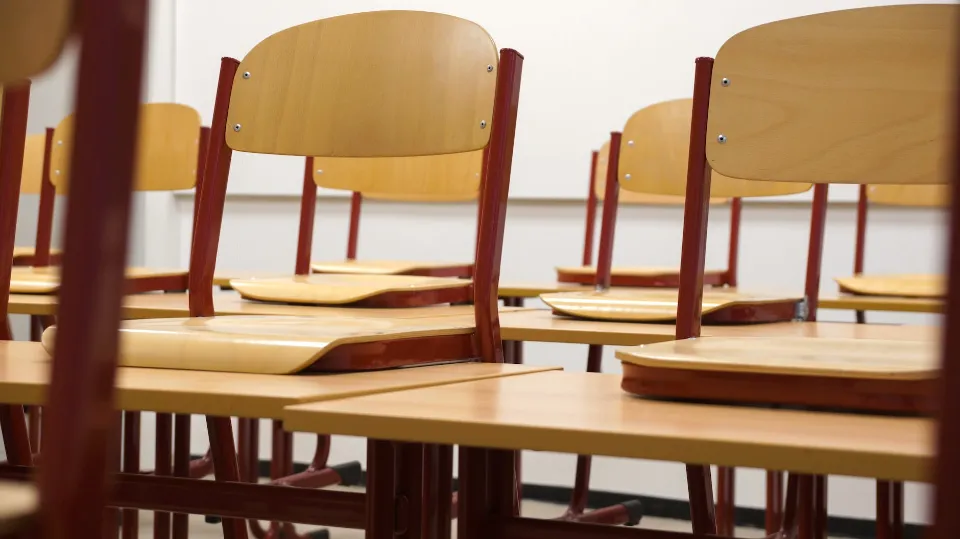
Do Colleges Look at Attendance? Detailed Explanation
You might be concerned about how your performance in college will be impacted if you have a history of skipping classes. To learn more, keep reading.
Do colleges look at attendance? They occasionally don’t look at individual attendance sheets, but it depends. However, skipping class frequently lowers your GPA. Specific grade point averages are required for admission to colleges.
Below is a detailed discussion of the criteria that universities use to determine admissions, including how they view attendance.
Do Colleges Look at Attendance?
If a student’s attendance history doesn’t affect their final grade, colleges are not overly concerned about it. The likelihood that you won’t show up to class every day is acknowledged by colleges. Due to personal events like doctor’s appointments, illnesses, and important occasions, you will miss a few days. It’s typical.
Are colleges checking attendance? However, taking a few days off won’t affect your grade point average. You can make up for what you missed by taking the initiative.
You might be concerned about how your college grades will be impacted if you frequently miss classes. Will the number of times you attend affect your chances of getting into a specific college?
Related:
Will colleges let future employers know you’re not there? Understanding whether universities consider attendance is crucial for making the best impression possible.

What If You Missed Too Many Days of Class?
If your absence was longer than usual, please give an explanation. You can get advice from your high school guidance counselor. The counselor must compose an explanation letter to send to the college you are applying to.
If you were away for a while, you probably spoke with a counselor or someone similar. In light of your circumstances, they will give you advice.
Why Does Class Attendance Matter?
On your transcript, attendance is hardly ever noted. On your transcripts, all of the information you submitted will be listed in the order you took it, including your classes, grades, overall GPA, and ACT or SAT scores. Colleges will be informed of any serious crimes, such as expulsion or suspension.
Here are a few justifications for why attending class does matter.
Miss Out on Important Information
You can get the information from the book, which is one of the reasons you might want to skip class. It might not make sense for you to attend class if your teacher only uses material from the book.
When you can simply read the book, why would you do that? The issue with this way of thinking is that there is always a possibility that your teacher will add information to the lecture that isn’t in the book, even if they teach directly from it.
If you’re not present, you won’t know about this information. There’s a chance you won’t provide the correct response if it appears on a test. Attending class is especially crucial if your teacher doesn’t teach from the book.

You only learn half the story by following the book or even the syllabus. You must comprehend the material being covered in class if you hope to do well. To achieve that, you must enroll in classes. You can avoid missing any important information by showing up to class.
Breaks Down Challenging Concepts
Attending class can also help you better understand your coursework, which is another reason why you should do so. You might not comprehend the book’s message if all you do is read it. The purpose of a teacher is to accomplish this.
They are able to take the information from a textbook and deconstruct it into simpler chunks that make the information more understandable.
It ultimately takes up more time to try to learn from the book independently. You could be spending that time having fun or with friends. A condensed version of the knowledge that your teacher imparts can be learned in class.
You might perform better in class as a result, and you’ll also need to spend less time outside of class trying to learn the material. You can learn more difficult concepts if you show up to class.
Aware of Surprise Exams Or Scheduled Exams
Attending class is important if your teacher prefers surprise exams or tests in general. Even some teachers factor test results heavily into your final grade. You might receive a failing grade overall if you don’t do well on the tests.
Some teachers enjoy administering unexpected exams. A specific section of the module may have just come to an end.
Your teacher may administer a surprise quiz or test to gauge how much you learned. You might not know the information if you haven’t been to class. There’s even a chance that you’ll completely miss the quiz if you frequently miss class. This could significantly affect your grade because some teachers count missed quizzes as failures.

Knowing when exams are scheduled is another advantage of attending class. A test might be scheduled for next week, according to your teacher. The syllabus might not include it. If you skipped class, you might not be aware that a test was scheduled for that day.
Due to your lack of preparation, you either miss it or fail it. You can be sure that you can be aware of any upcoming tests or exams by attending class.
Fun
The fact that class can be boring is one of the reasons students occasionally skip it. Nevertheless, it’s not always the case. Attending class can be a ton of fun if you have a fun instructor or enjoyable classmates. There are always special moments when something hilarious happens, even though it might not always be enjoyable.
You would miss those opportunities if you skipped class. Those are the times that come up when classmates reunite for high school reunions. They are the memories that you think back on most fondly as an adult.
Your high school years are going to be pretty forgettable if you don’t have any of those memories from missing class. You can avoid missing out on any memorable experiences by attending class.
Get Kicked Out of Class
Your attendance may not be taken into account by the college administration, but a professor may. A college professor who instructs a smaller class rather than a lecture hall is likely to make an effort to engage every student.
They are also aware that class size limitations prevent all applicants from enrolling. When a student consistently skips class, the teacher may decide to expel them. Another student who wishes to enroll in the course will then have a chance to do so. This might not bother you as much if the class is not necessary for you.

However, dropping a class that you need to pass in order to continue your education can be annoying. You may lose access to financial aid in addition to having to retake the course the following semester.
The number of credit hours you have for that semester decreases, for instance, if you decide not to enroll in the class. Because the number of credits you are taking each semester is frequently based on your eligibility for financial aid, a sudden drop in credits indicates that you have outstanding debt.
You will need to figure out a way to repay that money if you already used it to buy books and other items. If you don’t have the funds available or are not employed, that might be challenging. It is possible that if you don’t show up for class, your teacher may remove you from the class.
Gpa
The last justification for going to class is your GPA. Regular absences from class will probably lower your GPA. This is because you won’t likely perform well in class.
Missing class prevents you from learning crucial information about the subject you’re studying. By attempting to learn about the concepts on your own, you run the risk of missing tests or failing to grasp them.
Your grade in the class drops off as you struggle in it. This might be taking place in several classes if you miss several of them.
Your GPA as a whole starts to drop as a result. Even one class failure could have a significant effect on your GPA. Your ability to enroll in college or graduate school may then be impacted.
GPAs matter much more to colleges than attendance statistics. That’s because they are aware that if you don’t show up to class, your GPA is probably not going to be very high. Attending class increases your chances of doing well in the class and maintaining a high GPA.

What Do College Admissions Look At?
You now know that colleges don’t really consider attendance; let’s look at what they do.
A Dip in Grades
Do you receive all As in school? Your high school transcripts will be inspected by admissions officers at universities. If they notice that you went from receiving straight As to receiving Cs and Ds, they will question you about it.
On college applications, a section titled “Additional Information” is common. Why did your grades decline? Make sure the school counselor mentions the decline in grades in their letter of recommendation. You need not be concerned if you have a valid excuse, such as an illness.
Curriculum Changes
When students enroll in advanced classes, colleges tend to favor them. But it’s possible that you enrolled in AP classes before switching to regular classes in the middle. This is concerning because it would demonstrate to the admissions committee that you are incapable of handling harder material.
You dropping courses connected to the program you want to study would also be a cause for concern. It wouldn’t look good if you drop “major” classes either. Use the Additional Information section of your application once more to describe yourself.
Inconsistent Information in Transcripts
All of your submitted documents will be reviewed by the admissions teams. If your transcripts contain contradictory information, there will be a problem. There is only a preventative approach to this problem. Verify everything you’re submitting twice, and avoid lying to boost your application.

This is acceptable if you overly prioritized your studies and did not participate in any extracurricular activities. In your personal statement, be sure to tell a compelling story about why you chose to concentrate on your studies.
Any Disciplinary Infractions
This won’t be a big deal if you have a few minor disciplinary infractions on your record. Having said that, your record may include suspensions and expulsions. You would most likely not be admitted to the program you applied to because of them. You might be viewed by the college as a risk to other students.
A suspension or expulsion would make it more difficult for you to enroll in a reputable school, even if you had perfect grades.
The Additional Information section, once more, could be used to describe the disciplinary infractions. When writing your personal statement, meet with your guidance counselor as well.
They will assist you in writing a strong college essay using the disciplinary offense you were dealt. In your recommendation letter, hopefully, your guidance counselor will mention how much you’ve grown.
Conclusion: Do Colleges Look at Attendance?
Attendance is not really taken into consideration when applying to colleges. Only if it’s on your permanent record and you’ve consistently missed several months of school could it be taken into account.
Your GPA is what they care about the most. Attendance in class, however, has a direct impact on your GPA, so it’s critical to be present.


